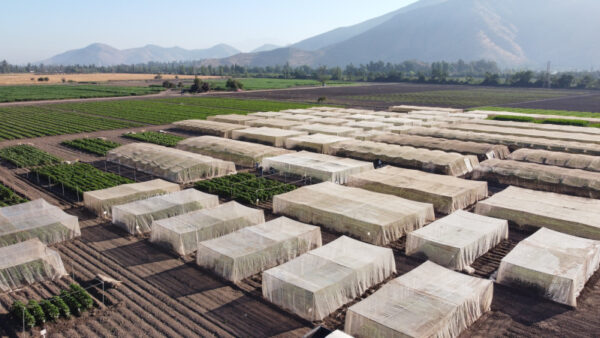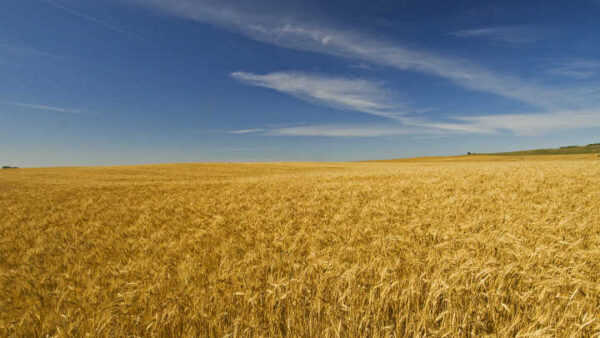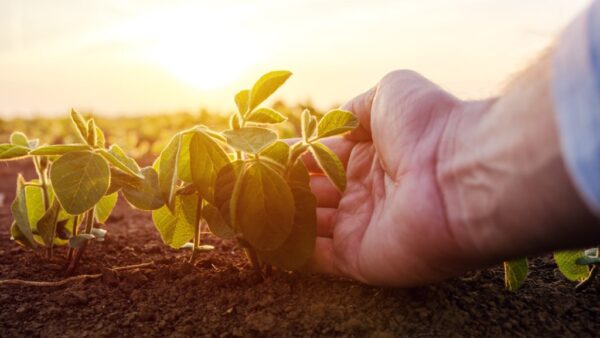Taking inspiration from Canadian efforts, mental health advocates are helping ensure an important conversation happens in America’s ag community.
Mental health advocacy and technology have come together to help begin a crucial conversation in America’s agriculture community and beyond.
The #FarmStateOfMind initiative by Bayer’s Acceleron portfolio is helping people use social media to encourage farmers and the agriculture industry in general to talk more about mental health. It’s part of a wider effort to help reduce stigma and encourage everyone affected by mental health concerns to take care of themselves and seek the help they need to deal with the often-tough business that is farming and agriculture in general.
“Farming has always been high stress — that’s nothing new — but this year especially, conditions escalated beyond what they normally do,” says A.J. Hohmann, U.S. marketing manager at Bayer SeedGrowth, who is spearheading the #FarmStateOfMind initiative. “This planting season was hard with all the rain and flooding, but that snowballed into fluctuating markets and all kind of other stressors that affect everyone in our industry. It’s the perfect storm for mental health concerns.”
But mental health, he points out, is a huge elephant in the room that in the past hasn’t been talked about enough.
“Within the Acceleron portfolio, we thought it the right moment to bring some dialogue to this and let people know they are not alone,” he says. “We all deal with stress. Every segment of our industry has felt the effects of what’s going on out there, right from the farmer to the large multinational companies.”
Since the campaign launched in June of this year, the #FarmStateOfMind hashtag has helped people deal with an issue that Hohmann points out has always existed, but which people often don’t feel comfortable talking about.
That is changing, and fast.
“There’s been so much more awareness over the last year — we’re seeing a very drastic change in the comfortability among growers in terms of talking about mental health,” says Adrienne DeSutter, a former counselor who serves as a consultant with the Acceleron portfolio.
“We know yields have been hurt in a lot of areas, crops wiped out, and things we can’t control like weather, prices and trade are affecting everyone. People can relate more to those worries than they did before.”
According to statistics from the Acceleron portfolio, mental illness affects 1 of out every 5 adults. One in 3 farmers are not comfortable talking about their mental health due to the stigma associated with it. Over 53% of rural areas in the United States have a shortage of mental health professionals.
“By its very nature, farmers are in a career that is rather isolated in terms of lifestyle,” DeSutter adds. “When we realize we’re in it together, it makes us feel more comfortable talking about it.”

Executive Director
Do More Agriculture Foundation
Having the Conversation
Getting more comfortable with the mental health conversation is something happening north of the border as well. In Canada, the launch of the Do More Agriculture Foundation (Do More Ag) in January 2018 has helped growers there engage in conversations surrounding stress, self-care and how to access resources when needed.
“We pride ourselves for being champions of the mental well-being of all Canadians,” says Do More Ag’s Executive Director, Adelle Stewart.
“Stress is a part of life and we need a certain amount to perform at our peak abilities. Anyone can recover from a mental health issue — it takes self-care and, in some cases, professional help, but it is not forever. It’s crucial we talk about it so everyone can get the help they need to live a healthy life.”
Bayer Canada has partnered with Do More Ag, contributing $20,000 to the foundation to support its mission of providing support and resources to farmers seeking mental health assistance.
The Canadian statistics paint a sobering picture of mental health in agriculture in that country, too: Canadian farmers are among the most vulnerable when it comes to mental health according to a 2016 study from the University of Guelph in Ontario.
Stress, anxiety, depression, emotional exhaustion and burnout are all higher among farmers than among other groups, the survey shows. As well, Canadian farmers are more stressed than those living and working elsewhere.
The survey found 45% of survey respondents had high stress. Another 58% were classified with varying levels of anxiety and 35% with depression.
Overall, that’s two to four times higher than farmers studied in the United Kingdom and Norway, says study author Andria Jones-Bitton, a professor in the university’s department of population medicine.
“Some of the producer comments leave little doubt about the impact their job and culture are having on them,” Jones-Bitton says. “One said, ‘We are not invincible, but we feel we must be.’ Another said, ‘What makes me the most upset is that I have everything I dreamed of — love, family and a farm — and all I feel is overwhelmed, out of control and sad.’”
Solutions
The good news is that anyone going through a mental health challenge can use simple self-care techniques to improve their well-being.
“Go back to basics: sleep, eating, exercise and breathing,” DeSutter says. “Those are all things people struggle with because of their busy routines. Sure, not everyone can find time for a 60-minute workout at the gym every day. Thing is, you don’t need a gym membership to get exercise. Can you walk instead of taking the ATV around the farm? When you check equipment, take a couple of laps around the tractor to get your blood flowing.”
The key is to employ these techniques before a mental health issue spirals into a crisis, she adds.
“In fact, a major sign of a mental health crisis on a farm is the decline in care, be it care of animals, crops, the business in general,” DeSutter says. “If you feel confident and happy, that affects the other areas of your life in a positive way. Mental health is 100% correlated with the health of a business.”
For those experiencing a mental illness or mental health crisis, help is available, DeSutter says. The first point of contact should be your doctor, who can direct you to various local resources, be it therapists, support groups or other avenues of support.
If you’re on social media, reach out with the hashtag #FarmStateOfMind and take part in the conversation.
“This is a great opportunity for anyone in agriculture to come together and voice how they feel. We’re all in this together,” Hohmann adds.












